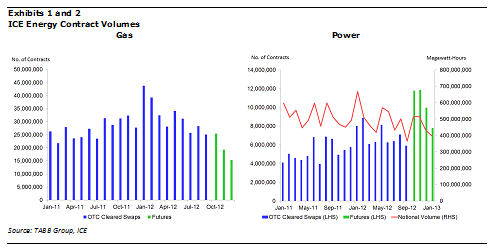Difference Between Future and Swap Futures vs Swaps
Post on: 23 Май, 2015 No Comment

Posted on April 1, 2013 by admin Last updated on: April 1, 2013
Futures vs Swaps
Derivatives are financial instruments whose value depends on the value of an underlying asset or the value of an index. Derivatives are used for a number of purposes which include risk management, hedging, speculation, portfolio management, and for arbitrage opportunities. Two such commonly discussed derivatives are swaps and futures. Swaps and futures are quite distinct from one another and are used in a number of different scenarios. The following article offers a clear explanation on each type of derivative and shows how each is similar and different from one another.
A swap is a contract made between two parties that agree to swap cash flows on a date set in the future. Investors generally use swaps to change their asset holding positions without having to liquidate the asset. For example, an investor that holds risky stock in a firm can exchange dividends returns for a lower risk constant income flow without selling off the risky stock. There are two common types of swaps; currency swaps and interest rate swaps.
An interest rate swap is a contract between two parties that allows them to exchange interest rate payments. A common interest rate swap is a fixed for floating swap where the interest payments of a loan with fixed rate are exchanged for payments of a loan with a floating rate. A currency swap occurs when two parties exchange cash flows denominated in different currencies.
A futures contract obligates a buyer to buy and a seller to sell a specific asset at a specific price to be delivered on a predetermined date. The assets which are bought and sold can be either physical commodities or financial instruments. Futures contracts are standardized so that they can be exchange traded. The probability of default is very low since futures contracts go through a clearing house that guarantees that the transaction is completed on both ends. Futures contracts are marked to market on a daily basis, which means that settlement is done daily and if the margin falls below the requirement a margin call is made to bring the account back to the required margin. Futures contracts can be settled by making a physical delivery, or can be settled by paying in cash.
Futures are generally used for hedging of risks and speculation of price movements with the aim of making profits. Large companies use futures to hedge against risk of price fluctuation, and traders and use futures to speculate price movements with the aim of making profits.
Swap vs Future
Swaps and futures are both derivatives, which are special types of financial instruments that derive their value from a number of underlying assets. Futures contract are exchange traded and are, therefore, standardized contracts, whereas swaps generally are over the counter (OTC), which means that they can be tailor made according to specific requirements. Another major difference between the two is that futures require a margin to be maintained, with the possibility of the trader being exposed to margin calls in the event that the margin falls below requirement. The advantage with swaps is that there are no margin calls.
Difference Between Swap and Future
• Swaps and futures are both derivatives, which are special types of financial instruments that derive their value from a number of underlying assets.
• A swap is a contract made between two parties that agree to swap cash flows on a date set in the future.
• A futures contract obligates a buyer to buy and a seller to sell a specific asset, at a specific price to be delivered on a predetermined date.
• Futures contract are exchange traded and are, therefore, standardized contracts, whereas swaps generally are over the counter (OTC); they can be tailor made according to specific requirements.
• Futures require a margin to be maintained, with the possibility of the trader being exposed to margin calls in the event that the margin falls below requirement, whereas there are no margin calls in swaps.














